The new generation of Countryman brings back a lively John Cooper Works version. Powered by a 300 hp petrol engine, Mini’s chic SUV explodes the scores. Weight, size and price scores.
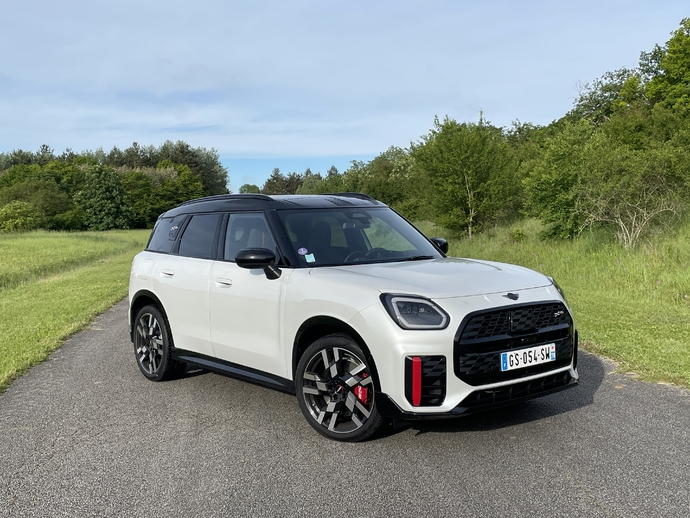
The new Countryman begins its commercial career in France with a very diversified range of engines ranging from 100% electric to diesel and traditional gasoline units. Despite a trend towards greening, the British manufacturer has chosen to renew the insolent sports version called John Cooper Works, whose stratospheric final bill flirts with €83,000.
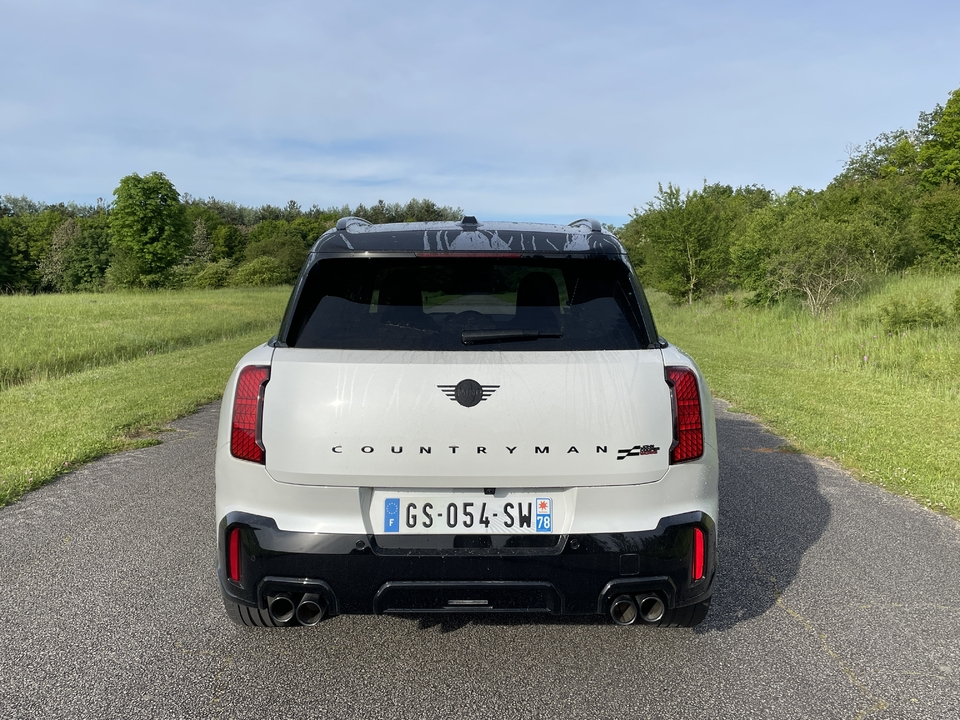
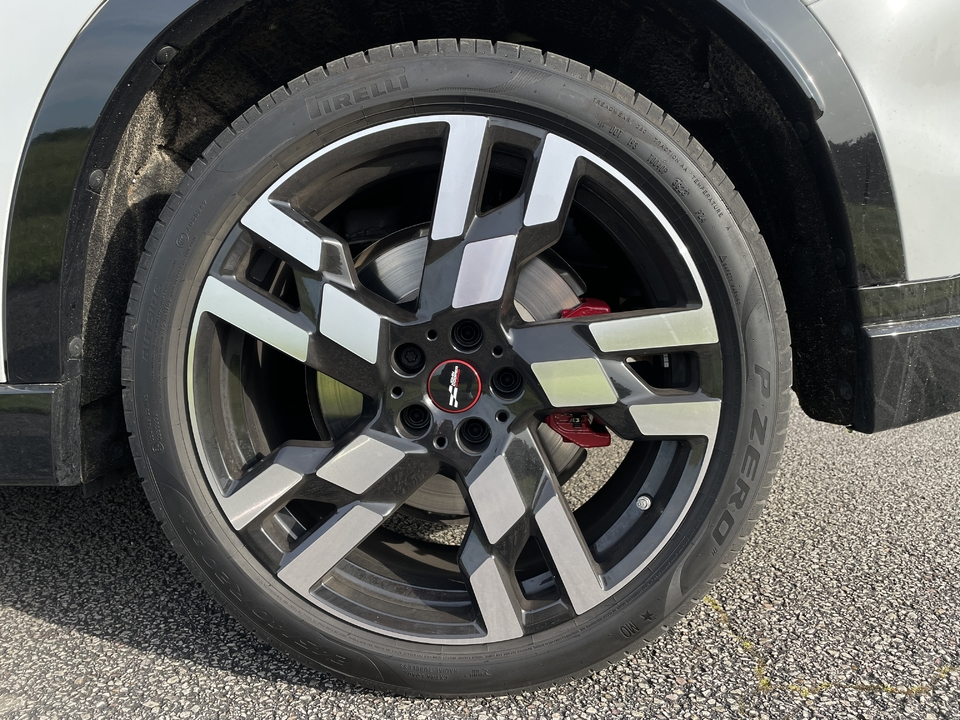
As standard, the SUV rests on 19 » rims. Here the optional 20 » rims are shod with very efficient Pirelli P-Zero.
In France, for our trial version, it will be necessary to add to the price of €57,843 a hefty double penalty (CO2: €23,730 / Weight: €1,350). At this price, the most imposing Mini wears a jogger made up of 19 » alloy wheels (20 » on our test model), a 4-outlet exhaust, glossy black roof bars, a oversized braking and numerous badges bearing the image of the founder (grille, tailgate and quarter panels). This white livery is not the most prominent in the catalog but it highlights the new styling elements of the Countryman such as the full LED optics with animations, the two-tone floating roof or even the imposing hollow hood.
On board, this Mini JCW has the best of the catalog such as the imitation leather upholstery, the branded sports seats and steering wheel, the panoramic glass roof and the powerful Harmann/Kardon sound system. The completely transformed presentation is modern and very digital. Everything is grouped together in the imposing circular screen measuring 24 cm in diameter. The latter presents truly excellent graphics quality and performance. What is less so is the quality of presentation, which is down compared to the previous generation.
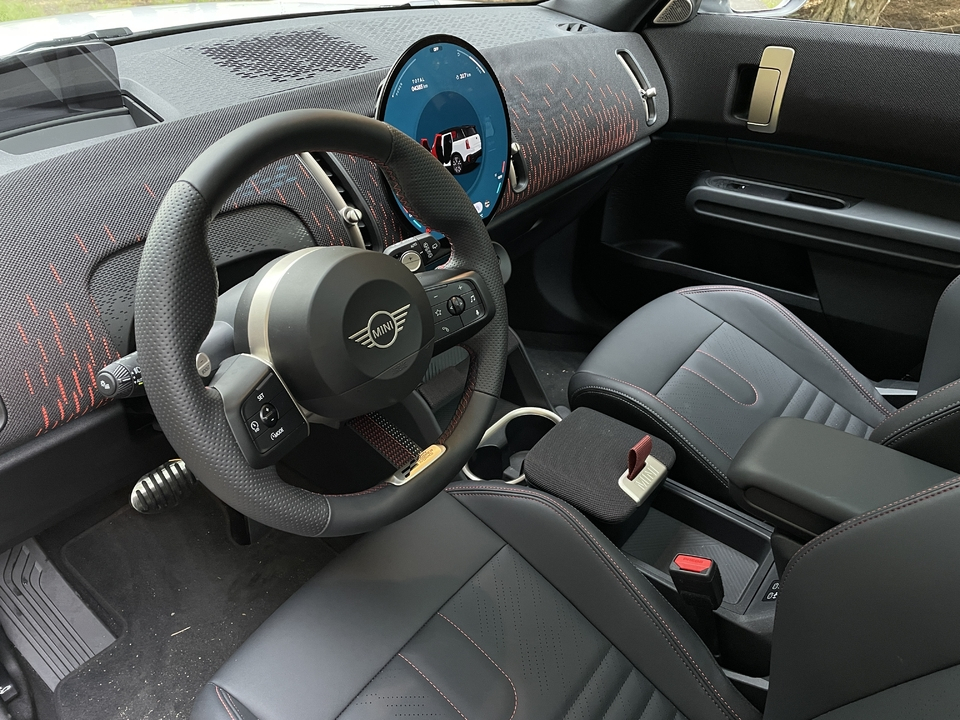
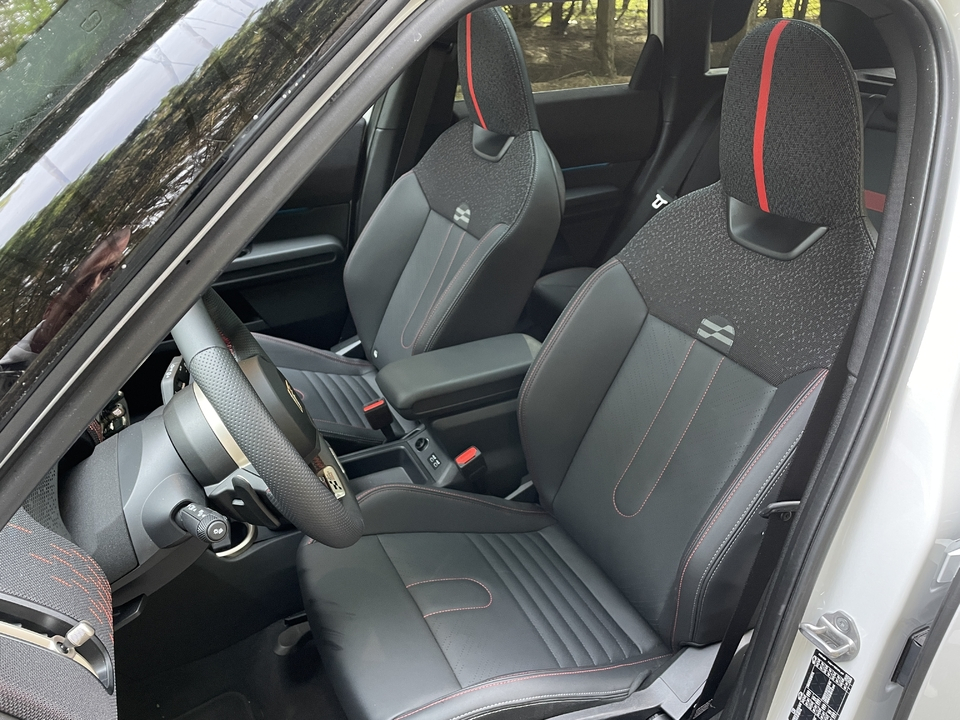
The dashboard is covered in fabric with ambient light inlay, a pleasant decor but a dust nest. We especially regret the appearance of poor quality plastics (hard and shiny) on the top of the dashboard and the door trims. Whether it is badged JCW or not, this Mini Countryman uses its gain in size to benefit passengers. The rear seats are spacious and there is plenty of storage space. The trunk, despite the presence of ALL4 all-wheel drive, is still average with a volume varying between 450 and 1,450 liters.
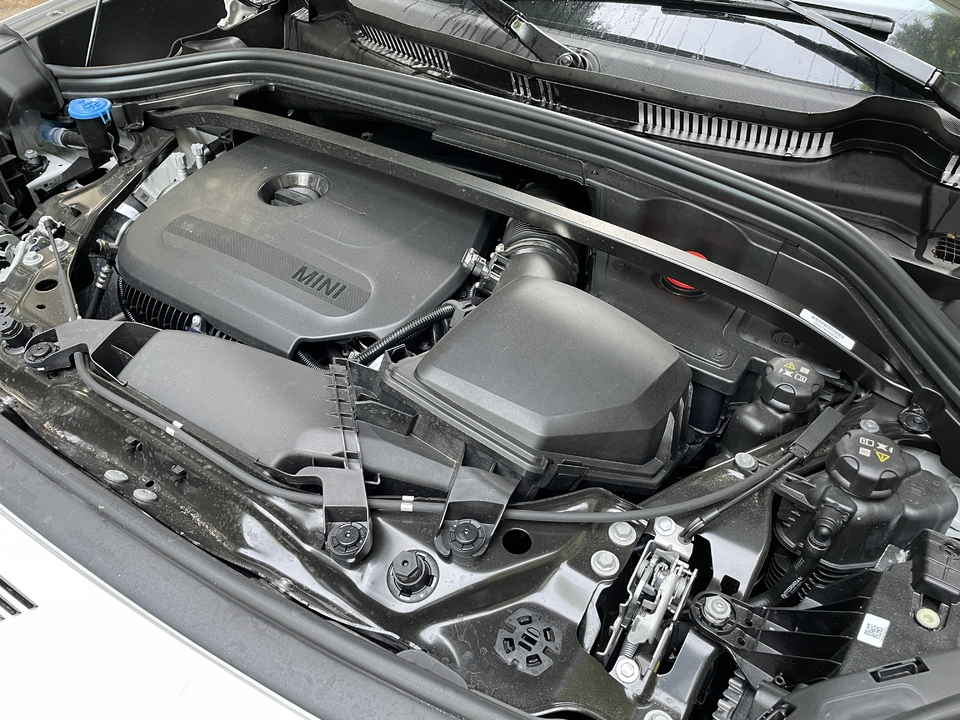
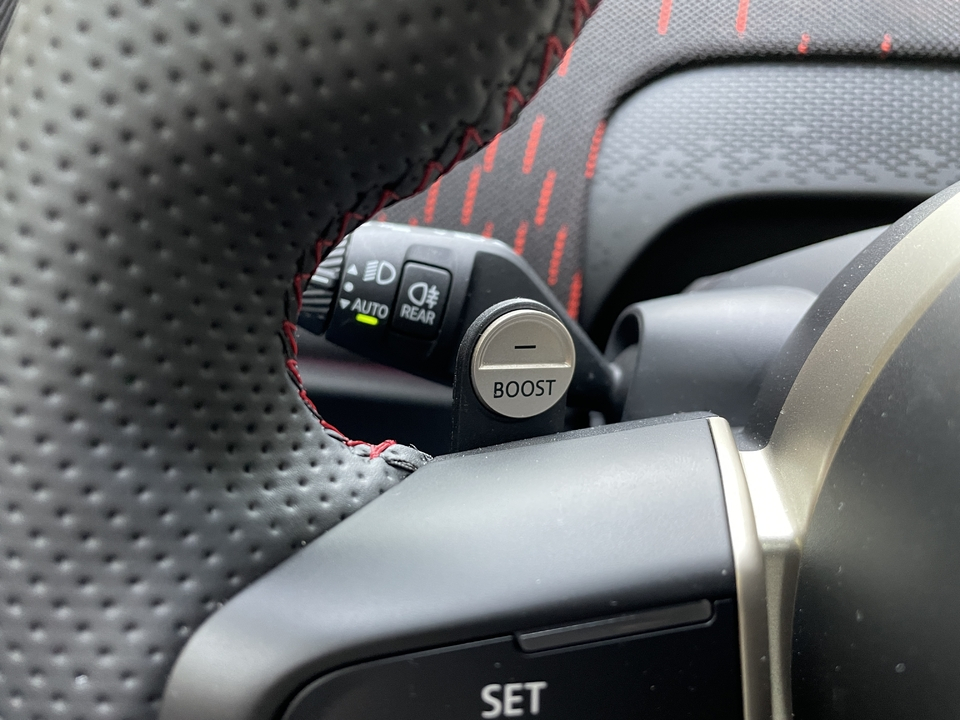
The heart of this version is naturally its engine. The offer is evolving with the arrival of a new supercharged 2.0 from BMW, also offered with the BMW X1 35i . The latter reaches a power of 300 hp and delivers a maximum torque of 400 Nm. It is a new twin-turbo petrol engine, reworked and associated for the first time with a quadruple exhaust outlet and coupled to a gearbox. 7-speed dual-clutch automatic with boost function. This package allows the British SUV to go from 0 to 100 km/h in 5.4 seconds and reach a maximum speed of 250 km/h. Performance slightly down compared to the previous generation, which can be explained by the arrival of this box.
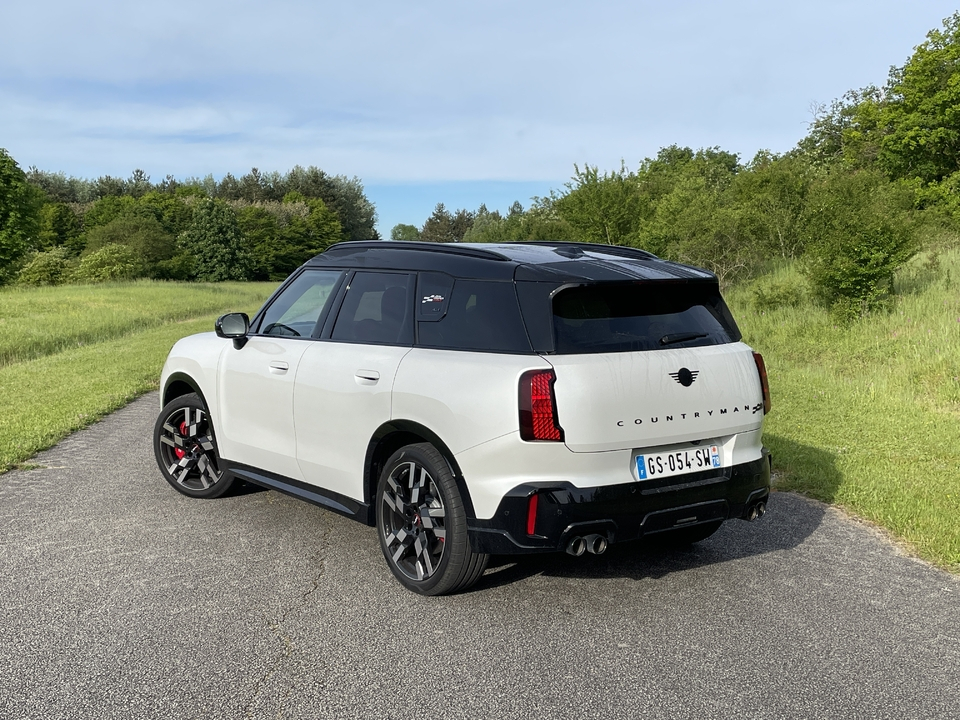
In practice, this 2.0 proves too powerful for the Countryman and in particular for the front axle which is quickly overwhelmed by the excess torque. It will be necessary to systematically correct the trajectory while driving during strong accelerations. This excess of power is redistributed too soon by the all-wheel drive. You will therefore have to be vigilant over the first few meters. Then, the big 2.0 unfolds its torque without forcing to offer invigorating responses and a fairly impressive extension. This engine could show even more character if the automatic transmission did not show weakness in the choice of gears and if the sound, pleasant by the way, was not reproduced artificially in the speakers. The crackling and metallic sound present on board the BMW X1 35i are non-existent here. At low revs, the 4-cylinder demonstrates great flexibility, offering very pleasant driving.
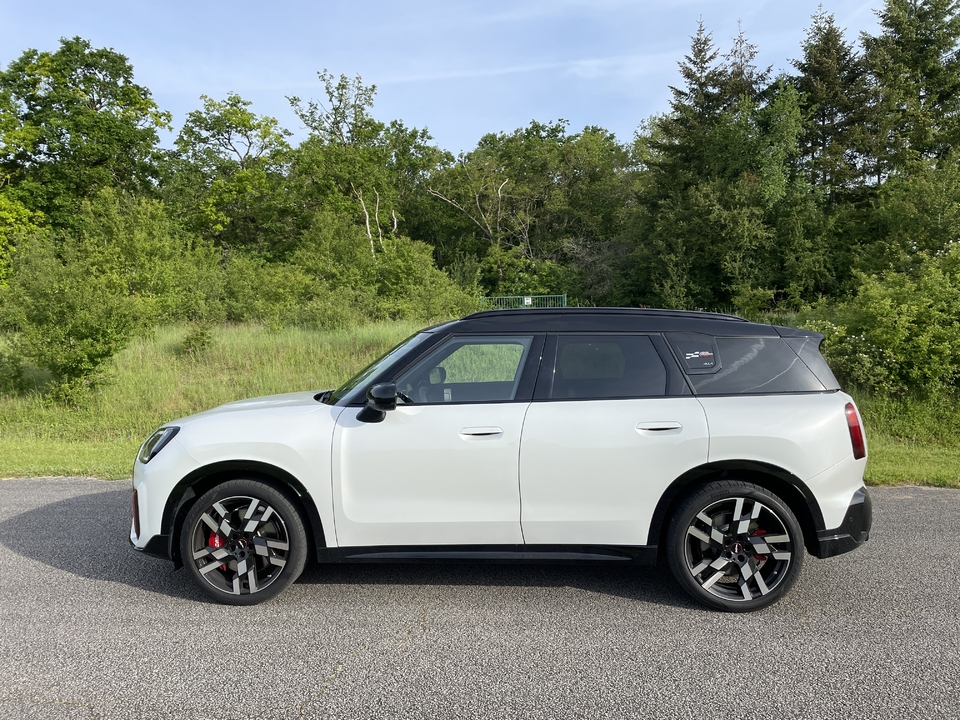
This engine was not designed to be economical and it shows. Without electrification, it consumes an average of 9.5 l/100 km in “normal” driving and emits 180 CO2/km, which does not make it a good performer in terms of taxation (CO2 penalty: 23,730 €). Mini had the good idea of increasing the size of the fuel tank for this version by around ten liters (54 liters) to maintain autonomy worthy of the name.
Well positioned on imposing 20 » rims and on a chassis lowered by 15 mm, the Countryman JCW is not a comfort model but it manages to remain livable at low speed thanks to the presence of an adaptive chassis ( standard), which absorbs irregularities well. The latter also stiffens the suspensions when it comes to releasing the cavalry and that is quite reassuring. Generally speaking, the Countryman remains glued to the ground (especially for our version shod with Pirelli P-Zero). Mass transfers are well contained in curves and driving is reassuring at all points.
But we must admit that it is light years away from the “Go-kart feeling” spirit claimed by the brand and present on previous productions. The SUV shows a certain inertia when it comes to “throwing” itself into fast curves. Agility is non-existent and all sensations are sanitized. The increasing weight (1,735 kg) and dimensions do not help the Countryman to give the best of itself in sporty driving. We are more on the “Gros-Kart feeling”. Good point, braking. The latter has a good bite and a very pleasant pedal feeling which reassures in the event of an emergency. The same goes for the driving position, improved by the presence of a sports steering wheel with a thick rim and seats that are both comfortable and well-enveloping.




